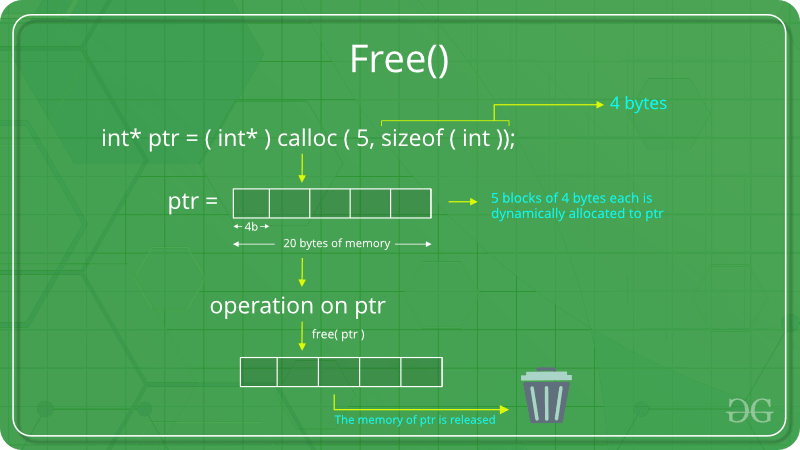How To Use Malloc In Dev C++
- C library function - malloc - The C library function void.malloc(sizet size) allocates the requested memory and returns a pointer to it.
- There are some reasons to avoid malloc in C: 1. Malloc is not type safe, whereas new is. If you are using malloc, you must call the constructor explicitly. The same applies for free/destructor. New/delete handle this internally. However, ther.
- The C Standard Library
- C Standard Library Resources
Your code calls malloc in one routine, stores the pointer somewhere and eventually calls free in a different routine. A secondary reason is that C has no way of knowing whether there is enough space left on the stack for an allocation. Little snitch macos mojave. If your code needs to be 100% robust, it is safer to use malloc because then your code can know the allocation.
- C Programming Resources
- Selected Reading
Description
The C library function void *calloc(size_t nitems, size_t size) allocates the requested memory and returns a pointer to it. The difference in malloc and calloc is that malloc does not set the memory to zero where as calloc sets allocated memory to zero.
Declaration

Following is the declaration for calloc() function.
Parameters
nitems − This is the number of elements to be allocated.
size − This is the size of elements.
Return Value
This function returns a pointer to the allocated memory, or NULL if the request fails.
Example
The following example shows the usage of calloc() function.
How To Use Malloc In Dev C Pdf
Let us compile and run the above program that will produce the following result −